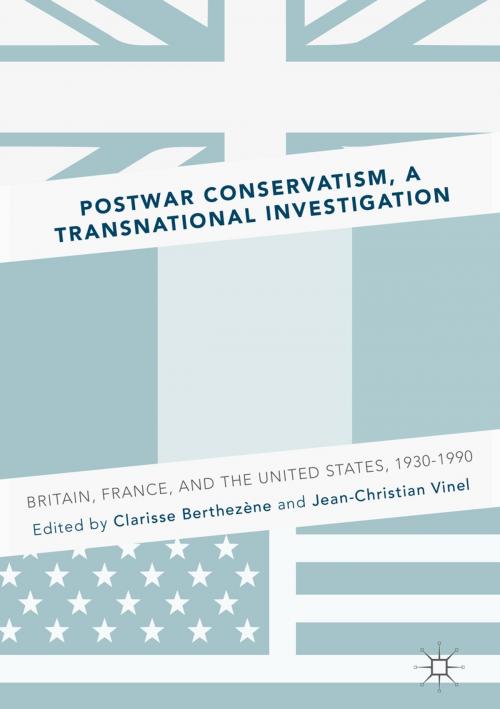Postwar Conservatism, A Transnational Investigation
Britain, France, and the United States, 1930-1990
Nonfiction, History, World History, Modern| Author: | ISBN: | 9783319402710 | |
| Publisher: | Springer International Publishing | Publication: | April 19, 2017 |
| Imprint: | Palgrave Macmillan | Language: | English |
| Author: | |
| ISBN: | 9783319402710 |
| Publisher: | Springer International Publishing |
| Publication: | April 19, 2017 |
| Imprint: | Palgrave Macmillan |
| Language: | English |
This volume offers a unique comparative perspective on post-war conservatism, as it traces the rise and mutations of conservative ideas in three countries – Britain, France and the United States - across a ‘short’ twentieth century (1929-1990) and examines the reconfiguration of conservatism as a transnational phenomenon. This framework allows for an important and distinctive point --the 1980s were less a conservative revolution than a moment when conservatism, understood in Burkean terms, was outflanked by its various satellites and political avatars, namely, populism, neoliberalism, reaction and cultural and gender traditionalism. No long running, unique ‘conservative mind’ comes out of this book’s transnational investigation. The 1980s did not witness the ascendancy of a movement with deep roots in the 18th century reaction to the French Revolution, but rather the decline of conservatism and the rise of movements and rhetoric that had remained marginal to traditional conservatism.
This volume offers a unique comparative perspective on post-war conservatism, as it traces the rise and mutations of conservative ideas in three countries – Britain, France and the United States - across a ‘short’ twentieth century (1929-1990) and examines the reconfiguration of conservatism as a transnational phenomenon. This framework allows for an important and distinctive point --the 1980s were less a conservative revolution than a moment when conservatism, understood in Burkean terms, was outflanked by its various satellites and political avatars, namely, populism, neoliberalism, reaction and cultural and gender traditionalism. No long running, unique ‘conservative mind’ comes out of this book’s transnational investigation. The 1980s did not witness the ascendancy of a movement with deep roots in the 18th century reaction to the French Revolution, but rather the decline of conservatism and the rise of movements and rhetoric that had remained marginal to traditional conservatism.















